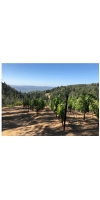Wine from Sky Devil

Our founders are connected through Marine Corps Aviation. Jeff’s grandfather was a Marine in WWII who served with VMF-311, a Marine F4-U Corsair squadron stationed in the South Pacific. Matt is a third generation Naval Aviator who served as a Marine AV-8B Harrier attack pilot with VMA-542 and VMA-231 during Operations Iraqi and Enduring Freedom. Because of this connection to Marine Aviation, the company was branded Sky Devil Wines.
Since WWI, Marines have proudly referred to themselves as Devil Dogs. In time, some Marine pilots began using the term Sky Devil to describe a Devil Dog with wings. The F4-U Corsair, a legendary gull winged fighter plane of WWII, is an iconic and enduring symbol of Sky Devils around the world and is the symbol of our winery.
We are building the Sky Devil brand to exhibit our namesake’s esprit de corps and to embody the heroic ideals of a high performing team focused on mission accomplishment. Relentless perseverance is foundational to the Sky Devil, and Sky Devil Wines pursues its passion and mission in the same way. Every day.
Our family and close friends made us who we are. They taught us everything we know, encouraged us to create something meaningful, and have been a driving force in our lives and our brand.
At Sky Devil, we believe in high performing teams and the intrinsic value of work – in doing what we enjoy, sweating the details, and letting the results speak for themselves. We believe in staying up late, waking up early, and enjoying the journey. We believe in trusting each other and taking time to enjoy fruit of one’s labor. We believe hard problems can be solved by family and friends working together – sitting around a table, sharing a meal...sharing wine. Talking...listening. We believe the easy way is rarely the right way.
Perhaps most importantly, we believe in celebrating life’s great moments...the big and little victories that make us each who we are. And we believe in forwarding the dream to others.
No products found
- back
Selected Options
Wineries
Categories
Pricing
Countries
Regions
Grape Types
Wineries
Organic/Free Shipping
Mark your calendars for June! Caymus 50th Anniversary Napa Valley Cabernet Sauvignon 2022 is a testament to fifty years of exceptional winemaking by the dedicated, passionate, and family-owned Caymus Vineyards. Since 1972, they have remained a beacon of excellence in Napa Valley, staying true to their roots and producing unparalleled Cabernet Sauvignon. This limited edition wine is a celebration of their rich history, tradition, and relentless pursuit of quality across generations.
Rinaldi Brachetto d' Acqui is made from 100% Brachetto d'Acqui
The skin gives the wine its particular scent and flavor.
Light ruby red color. The bouquet is musky and delicate with scents of ripe red fruit (strawberry, blackberry) and roses. Sweet and smooth flavors with lingering aromatic persistence. There is a good balance between the sweetness and the freshness, which makes this wine very pleasant.
The training system used is Guyot with a density of 2500-3000 vines per hectare. Manual harvest. Temperature controlled maceration for approximately seven days with mechanic plunging of the cap and pumping over to increase extraction of substances from the skins. This is the most important part of the vinification. Soft pressing.




